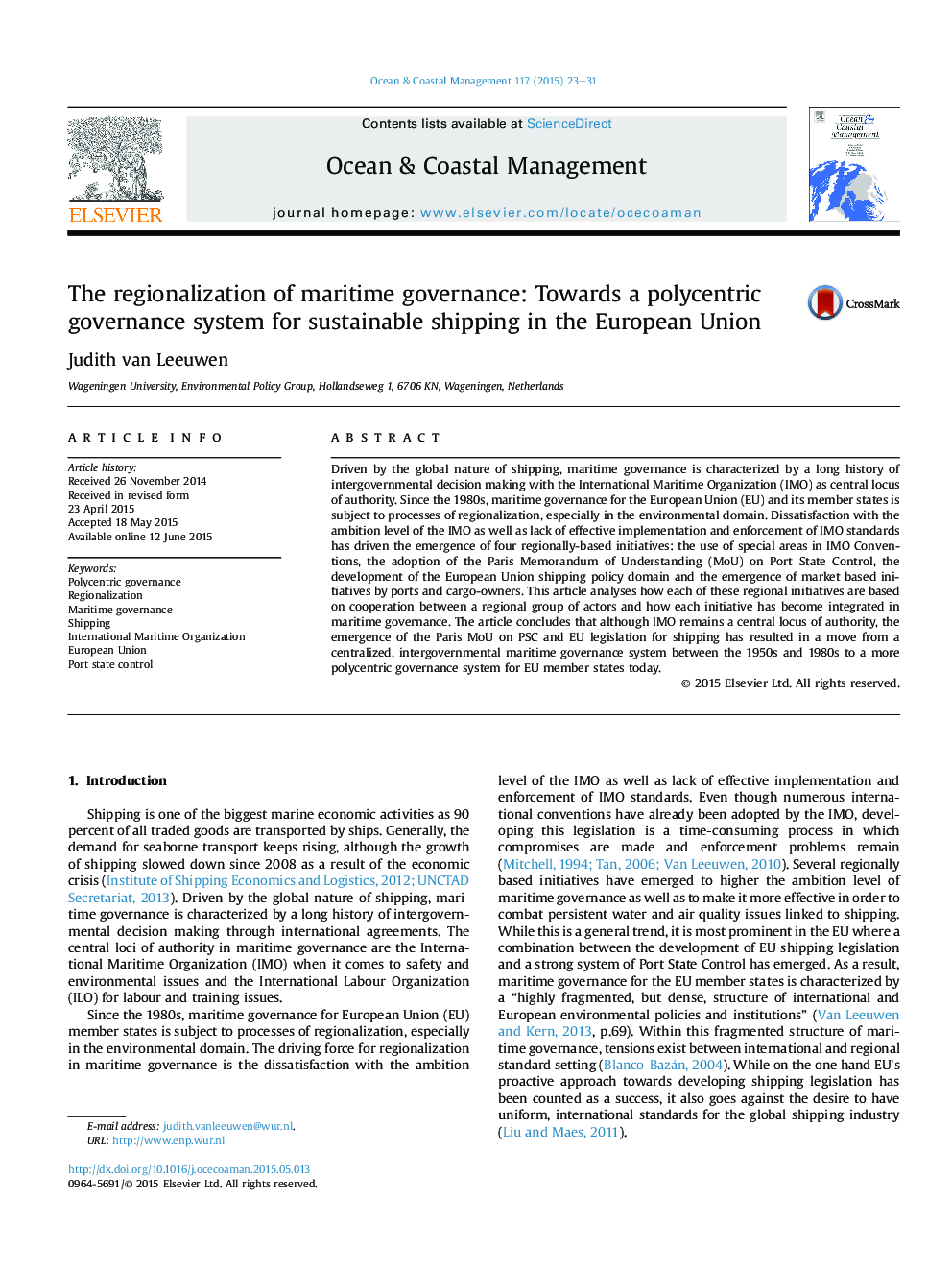| Article ID | Journal | Published Year | Pages | File Type |
|---|---|---|---|---|
| 1723448 | Ocean & Coastal Management | 2015 | 9 Pages |
•Maritime governance is subject to processes of regionalization.•IMO's ambition level, level of enforcement and the global nature of standards are contested.•The EU and the Paris MoU on Port State Control have become loci of authority next to IMO.•Maritime governance has become more polycentric in nature.
Driven by the global nature of shipping, maritime governance is characterized by a long history of intergovernmental decision making with the International Maritime Organization (IMO) as central locus of authority. Since the 1980s, maritime governance for the European Union (EU) and its member states is subject to processes of regionalization, especially in the environmental domain. Dissatisfaction with the ambition level of the IMO as well as lack of effective implementation and enforcement of IMO standards has driven the emergence of four regionally-based initiatives: the use of special areas in IMO Conventions, the adoption of the Paris Memorandum of Understanding (MoU) on Port State Control, the development of the European Union shipping policy domain and the emergence of market based initiatives by ports and cargo-owners. This article analyses how each of these regional initiatives are based on cooperation between a regional group of actors and how each initiative has become integrated in maritime governance. The article concludes that although IMO remains a central locus of authority, the emergence of the Paris MoU on PSC and EU legislation for shipping has resulted in a move from a centralized, intergovernmental maritime governance system between the 1950s and 1980s to a more polycentric governance system for EU member states today.
